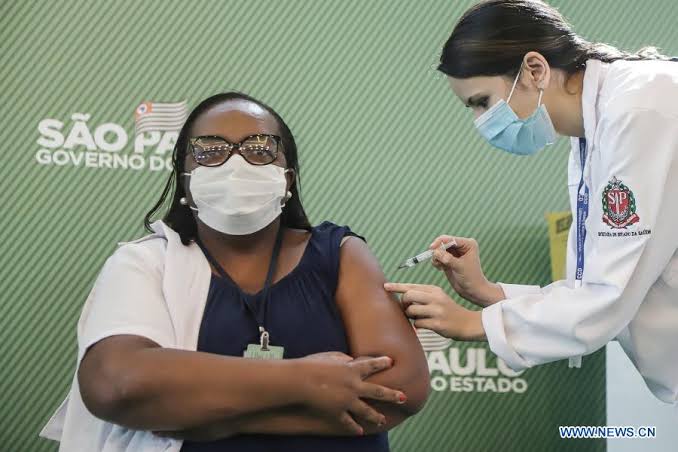By Haruna Gimba
Brazil’s health has approved the urgent use of coronavirus vaccines made by Sinovac and AstraZeneca, enabling Latin America’s largest nation to begin an immunization program that’s been subject to delay and political disputes.
Brazil currently has six million doses of Sinovac’s CoronaVac vaccine ready to distribute in the next few days and is awaiting the arrival of two million doses of the vaccine made by AstraZeneca and partner Oxford University.
“This is good news for Brazil, but six million doses are still very few. It will not allow the entire population at risk to be fully immunized, nor is it clear how quickly the country will obtain more vaccines,” an epidemiologist at the Federal University of Espirito Santo told Associated Press.
On Saturday night, the health regulator Anvisa rejected an application for use of a Russian vaccine called Sputnik V, submitted by Brazilian company União Química. Anvisa said it didn’t evaluate the application because it didn’t meet minimum requirements to start an analysis.
Vaccination in Brazil is beginning later than neighbors such as Argentina and Chile despite a robust public health system and decades of experience with immunization campaigns.
The process to present and approve the COVID-19 vaccines was fraught with conflict, as allies of President Jair Bolsonaro sought to cast doubt on the efficacy of the Sinovac shot backed by his political rival, Sao Paulo State’s Governor João Doria.
“The rivalry between Brasilia and the state governments prevented any cooperative work,” said Maurício Santoro, professor of political science at the University of the State of Rio de Janeiro.
“The governor lost the leadership position, but made Bolsonaro act more quickly to guarantee the start of vaccination.”
The vaccination priority will be health professionals on the front line against coronavirus.
Vaccination by the federal government will begin on Wednesday, Health Minister Eduardo Pazuello said on Sunday.
The Brazilian government is considering extending the time between the application of first and second doses of immunizers to reach more people quickly, Health Minister Eduardo Pazuello said in Manaus on Monday.




